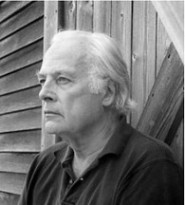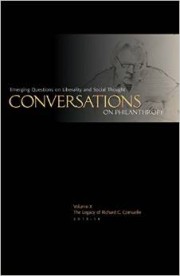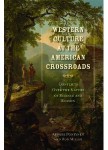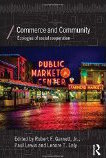Libertarian Mysticism?
Max Borders’ has recently published a provocative essay exploring what he calls the “rational mysticism” of the early libertarian movement, especially as seen in the works of Leonard Read’s Elements of Libertarian Leadership (1962). I applaud Max’s courage to venture into this rather forgotten dimension of Old Right and early libertarian thought, especially because it’s terrain on which Max confesses himself to be a bit shaky and thus seems to enter in an admirable spirit of humility in the search for truth. Max introduces us to Read thus:
Read offers something of a mystical way to libertarianism. He believes, for example, that anyone “who acknowledges an infinite consciousness cannot help but respecting fellow human beings as the apertures through whom infinite consciousness flows and manifests itself.”
Max allows his engagement with Read to raise questions for him–such as, What’s missing from the libertarian movement today?–and then explores several dimensions of what he calls rational mysticism, including the acceptance of paradox, the heuristic uses of parable and myth, the welcoming of wonder and openness, and comfort with non-linearity.
Max invites us to a conversation with this list of characteristics of rational mysticism, so I pick up the challenge. I would venture to add to Max’s fine list the acceptance of the indeterminacy of human persons, so wonderfully evoked by Michael Polanyi, who was comfortable eliding the barriers between the materiality field of chemistry and fideism of his epistemological framework. In Polanyi’s philosophical writings, especially in the lovely volume Science, Faith, and Society, we are brought to a view of the human experience in which the fulfilment of personality is an unfolding of knowledge and will “which must remain ultimately guided by the quiet voice of conscience.” (67)
Polanyi does not shy away from declaring that we cannot dispense with metaphysics. In fact, he affirms strongly that it is shared metaphysical beliefs that help hold together both scientific communities and democratic nations:
Furthermore, Polanyi tells us:
there is no purpose in arguing with others unless you believe that they also believe in the truth and are seeking it. Only in the supposition that most people are disposed towards truth essentially as you are yourself is there any sense in opening yourself up to them in fairness [the effort to state your case objectively] and tolerance [the capacity to listen to an unfair and hostile statement by an opponent in order to discover his sound points as well as the reason for his errors]. (82)
And without hesitation, Polanyi brings us squarely to the concepts of transcendent obligations and spirituality:
I believe to have shown that the continued pursuit of a major intellectual process by men requires a state of social dedication and also that only in a dedicated society can men live an intellectually and morally acceptable life. This cannot fail to suggest that the whole purpose of society lies in enabling its members to pursue their transcendent obligations; particularly to truth, justice and charity. (83)
Max asks what is missing from today’s libertarianism, and I would suggest that Polanyi was making a similar diagnosis and prognosis. The passage above continues:
Society is of course also an economic organization. But the social achievements of ancient Athens compared with those of, say, Stockport–which is of about the same size as Athens was–cannot be measured by the differences in the standard of living in the two places. The advancement of well-being therefore seems not to be the real purpose of society but rather a secondary task given to it as an opportunity to fulfil its true aims in the spiritual field.
Such an interpretation of society would seem to call for an extension in the direction towards God. If the intellectual and moral tasks of society rest in the last resort on the free consciences of every generation, and these are continually making essentially new additions to our spiritual heritage, we may well assume that they are in continuous communication with the same source which first gave men their society-forming knowledge of abiding things. How near that source is to God I shall not try to conjecture. But I would express my belief that modern man will eventually return to God through the clarification of his cultural and social purposes. Knowledge of reality and the acceptance of obligations which guide our consciences, once firmly realized, will reveal to us God in man and society. (83-4, emphasis added)
I would propose to Max that an exploration of the Christian libertarian tradition would be worth the effort. This tradition proposes to us not the need to rely on mysticism, but to use our intelligence to interpret God’s Revelation, both in the Books of Scripture and the Book of Nature, as it was expressed in an earlier age. There are tremendously interesting works that we might explore in this tradition. A fascinating place to start might be with the work of Frederick Nymeyer, such as Minimal Religion, in which he suggests that the critical metaphysical confrontation of the modern age has not been creation versus evolution but actually the contest between Christianity and Positivism.
“There cannot, in the Comtian world, be any genuine freedom of purpose,” Nymeyer wrote. “If there is any such freedom of purpose, then the chain of cause and effect is broken. A new, unpredictable, disturbing factor (or many factors) is injected in the ‘scientific world’ of cause and effect, as Comte visualized it, and as he was determined to describe it.”
The indeterminacy of the human person, her unpredictable unfolding in time, his attuning himself to a music unheard by others, her creativity, his capacity to surprise, her capacity to deceive, his capacity to murder… we each and every one throw a spanner in the Comtian social machinery.
It’s easy to understand why positivists must deny the methodological subjectivism upon which libertarian economics depends. It’s less easy to understand why libertarians themselves have so often failed to grasp its fundamentally roots in a spiritual view of persons, and thus become easy prey for their opponents’ charges that the libertarian philosophy breeds atomism, alienation, apathy, and anarchy of the destructive kind. The libertarians’ proclamations that they, too, really do have Rawlsian bleeding hearts, seems a less promising path forward than an effort to grapple, as Max is doing, with the philosophical tradition out of which the possibility of libertarian thought emerged.
That tradition can embrace certain aspects of the Enlightenment as well as certain traditions within the broad scope of the Christian faith. And it can make common cause with non-Christians who at least affirm that there is a metaphysical transcendence that we are each trying to understand, that there are grounds beyond mere legal positivism for holding one another to the laws of our communities of inquiry and faith, as well as the laws of nature and nature’s God.
That tradition, unlike many forms of mysticism, however, never calls us to submerge our individual identity but affirms that in fact we each are unique persons capable of freedom of purpose, not as atomistic individuals, but as participants in a consciousness that transcends us, calls us to respond in conscience to the call to pursue truth, love justice, do mercy and walk humbly, and ultimately enables our communion with one another and with God.
I hope Max and I will continue this discussion and that more folks will join us.
P.S. The Mises Institute, in a likely nod to speculation on the Mayan apocalyptic Dec, 21, 2012, reprints today a 1990 essay by Murray Rothbard on the politics of the millennium that suggests how familiar early libertarians were with discourse of the Christian tradition and its relationship to political thought and political programs through history. (Unfortunately, Rothbard did not take account of further developments in Christian millennial theology around the concept of amillennialism.)




